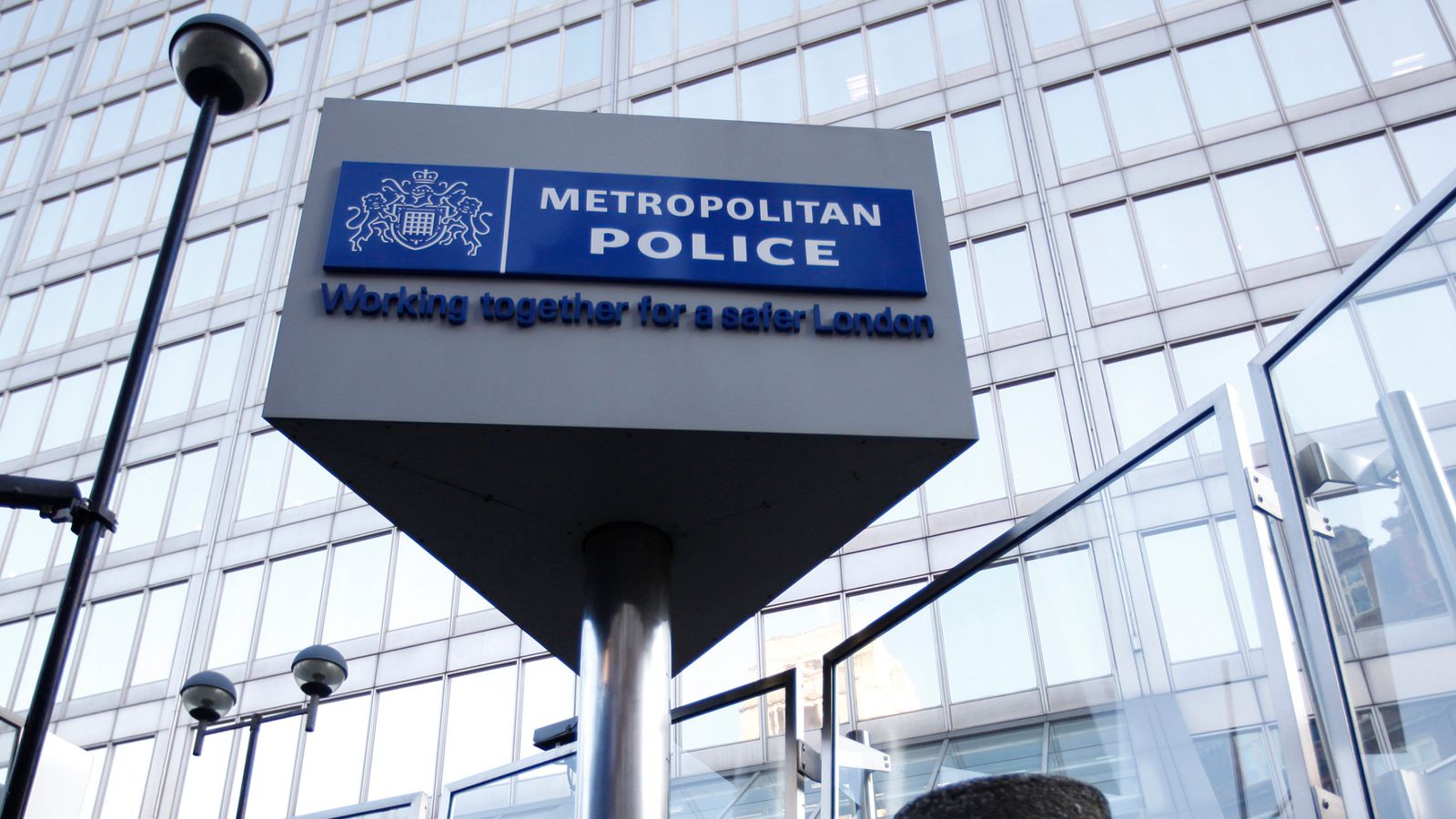After a year of investigating the Metropolitan Police, a damning report by Baroness Louise Casey has found it may need to be broken up to fix it.
Baroness Casey said racism, misogyny and homophobia are rife in the force, which needs a “complete overhaul”.
The 363-page report found evidence of bullying, poor management and a “boys’ club culture” which let down rape victims, among many other systemic failings.
However, the report’s scathing verdict is just the latest crisis for the organisation.
Here are six recent examples of controversies which severely damaged the Met’s reputation.
Sarah Everard
Sarah Everard, a 33-year-old marketing executive, was kidnapped near Clapham Common in south London and murdered by serving police officer Wayne Couzens in March 2021.
Couzens was sentenced to a whole-life order – the most severe punishment available in the UK’s justice system.
Couzens admitted to the kidnap, rape, and murder of Ms Everard.
The Met was also criticised when some officers used excessive force against women who had gathered in London for a vigil in Ms Everard’s memory.
In March 2023, Couzens was sentenced to another 19 months behind bars for three offences of indecent exposure shortly before he abducted, raped and murdered Sarah Everard.
Read more:
The details of damning report
Key and most shocking findings
Author calls for ‘wholesale change’ to policing
How splitting up the Met could work
Stephen Port
Known as the ‘Grindr killer’, Stephen Port murdered four men over a 15-month period.
Anthony Walgate, 23, Gabriel Kovari, 22, Daniel Whitworth, 21, and 25-year-old Jack Taylor were killed in Barking, east London, between June 2014 and September 2015.
An inquest in December 2021 found that failings by the Met “probably” contributed to three of the four deaths.
It was said that officers repeatedly missed opportunities to catch Port.
Despite many similarities, police failed to link the deaths.
The bodies of three victims were found at the same graveyard, while Anthony Walgate was left outside Port’s block of flats in Barking.
The Independent Office for Police Conduct (IOPC) heard officers failed to follow leads, murder detectives turned down requests from borough officers to take over the investigations, and concerns from the victims’ families were ignored.
Please use Chrome browser for a more accessible video player
Bibaa Henry and Nicole Smallman
Bibaa Henry and Nicole Smallman were stabbed to death in northwest London in June 2020.
Danyal Hussein,19, was jailed in 2021 for the murder of the two sisters.
The officers who were assigned to protect the scene, where the sisters were discovered, later admitted sharing images of the bodies.
PC Jamie Lewis and PC Deniz Jaffer have since been found guilty of gross misconduct. They were also subsequently jailed for 33 months each.
Messages between the pair were revealed, in which the officers referred to the women as “dead birds”.
Lewis sent a WhatsApp message which said: “Unfortunately I’m sat next to two dead birds with stab wounds.”
Jaffer then sent a message in a WhatsApp group saying: “I’m here now I’ll try to take pictures of the dead birds.”
After the two police officers pleaded guilty, the mother of the victims, Mina Smallman, called on the force “to drill down and get the rot out once and for all”.
Charing Cross police station
A police watchdog report in February 2022 identified misogyny, harassment, and bullying behaviour – including racist, sexist and homophobic messages – among officers based at Charing Cross police station between 2016 and 2018.
The watchdog’s findings included:
“The behaviour we uncovered was disgraceful and fell well below the standards expected of the officers involved,” the IOPC’s regional director Sal Naseem said.
“While these officers predominantly worked in teams in Westminster, which have since been disbanded, we know from other recent cases that these issues are not isolated or historic.”
Child Q
In December 2020, a 15-year-old girl was strip-searched by Met Police officers at school – the incident only came to light in March 2022 in a safeguarding report.
The report revealed that police officers had strip-searched the girl after she was wrongly suspected of carrying cannabis.
Child Q was searched by police without another adult present and with the knowledge that she was on her period.
In 2022, an investigation was launched against four Met Police officers and they were each served with gross misconduct notices in connection with the incident.
“Four constables have now been advised that they are being investigated for potential breaches of the police standards of professional behaviour at the level of gross misconduct,” the IOPC said at the time.
The watchdog also said it was looking into complaints that the victim’s mother was not given “the opportunity to be present during the strip search”.
David Carrick
Met Police officer David Carrick, who admitted 49 charges – including 24 counts of rape – against 12 women, was unmasked as one of Britain’s most prolific sex offenders.
There were a number of “systematic failings” within the force in his case:
The Met admitted there were no sufficient intelligence checks carried out in Carrick’s case.
His exposure prompted a rethink of police vetting across the country.
David Carrick was jailed for at least 30 years in February after carrying out a “catalogue of violent and brutal sexual offences”










